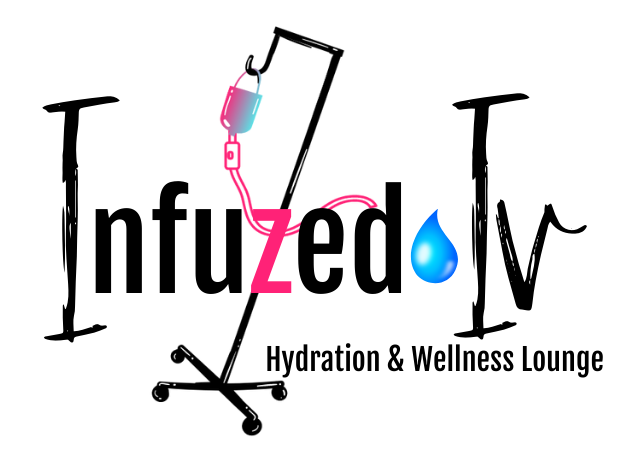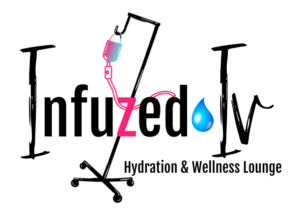Along with other nutrients, such as proteins, carbohydrates and dietary fats, vitamins and minerals help our body to grow and thrive. Each of these 8 essential vitamins and minerals plays a different role in our overall health. Most of us get what we need in our daily diets, with different foods providing different vitamins and minerals, according to the National Institutes of Health’s Dietary Supplements fact sheets. However, some people may have conditions that require vitamin or mineral supplementation in addition to what they get through their normal diet.
Vitamin A
Vitamin A keeps your heart, lungs, liver and other organs working properly. Also called beta-carotene, it’s important for reproductive, vision and immune system health. Vitamin A is known for helping your body’s natural defense against illness and infection (the immune system) work properly. It’s also shown great benefits for those having a hard time driving or seeing at night time or in dim lights.
You can get vitamin A from beef liver, salmon, broccoli, carrots, squash, green leafy vegetables, cantaloupe, apricots, mangoes, dairy products and fortified cereals.
Vitamin B
There are eight different essential B vitamins — B1 (thiamin), B2 (riboflavin), B3 (niacin), B5 (pantothenic acid), B6 (pyridoxine), B7 (biotin), B9 (folate) and B12(cobalamin).
They all help convert carbohydrates, fats and proteins into energy. Several B vitamins are also necessary for cell development, growth and function.
You may need more B vitamins if you’re elderly, have had gastrointestinal surgery, have a gastrointestinal disorder, or if you abuse alcohol. Women who are pregnant, breastfeeding or plan to become pregnant may need more B vitamins, particularly folate, which has been shown to prevent birth defects, according to the American Pregnancy Association. Up to 15 percent of people are deficient in B12. You may also need more B12 if you have pernicious anemia or are a vegan or vegetarian.
Vitamin B complex may help prevent infections and help support or promote:
- cell health.
- growth of red blood cells.
- energy levels.
- eyesight.
- brain function.
- digestion.
- appetite.
- proper nerve function.
You can get vitamin B from meat, poultry, fish, organ meats, eggs, legumes, seeds, nuts, whole grains, and fortified cereals, breads and pastas.
Vitamin C
Also known as ascorbic acid, vitamin C boosts the immune system and increases iron absorption from plant-based foods and supplements. Since it’s an antioxidant, vitamin C protects our cells from damaging free radicals. It also aids in wound healing by helping our body produce collagen.
If you smoke, you need 35 more mg of vitamin C per day than non-smokers because it takes more vitamin C for your body to repair the cell damage caused by free radicals in tobacco smoke.
You can get vitamin C from citrus fruits and juices, kiwi fruit, red and green peppers, strawberries, cantaloupe, broccoli, brussels sprouts, tomatoes, tomato juice and baked potatoes (cooking it this way, with the skin on, retains the folate, B6 and vitamin C.)
Vitamin D
Vitamin D builds strong bones by helping our body absorb calcium from food and supplements. It also boosts the functioning of the immune system.
People who avoid the sun or use sunscreen — all smart precautions for skin cancer prevention — may need supplements, as well as people with a malabsorption disorder where the body has difficulty absorbing nutrients (such as Crohn’s or celiac disease). If you live in Pennsylvania like we do, and find yourself extremely fatigued during the winter time, we urge you to get your Vitamin D levels checked. Let Infuzed IV bar help raise those levels to the 50’s-70’s.
Vitamin D isn’t found naturally in many foods. Known as the “sunshine vitamin,” most of the vitamin D our body gets is absorbed from the sun through our skin. Foods with vitamin D include salmon, tuna, mackerel, beef liver, egg yolks, mushrooms, and fortified dairy and nut milks and cereals.
Calcium
Roughly 99 percent of calcium in the body is found in bones and teeth, where it is crucial for structural support. The remainder is found in the blood, muscles and intracellular fluids, where it is a critical part of many metabolic, neurological and muscular functions. Postmenopausal women (who have an elevated risk of osteoporosis) and people who don’t consume dairy products (a primary source of calcium) are the mostly likely to require calcium supplements.
You can get calcium from dairy products (such as milk, cheese, and yogurt), fortified non-dairy milks (such as almond, soy and rice milks), fortified orange juice, sardines with bones, tofu (if prepared with calcium), collard green, kale, and broccoli.
Iron
Iron is an essential part of building red blood cells, specifically hemoglobin, a protein that bonds with oxygen to oxygen through the blood from the lungs to the cells throughout your body. Vegetarians need to consume almost twice as much iron daily because the iron in plant-based food is less available to the body than the iron found in animal products. Pregnant women and people with iron-deficient anemia may also need supplements.
You can get iron from meat (especially red meat and liver), seafood, lentils, beans, tofu, cashews, and broccoli.
Magnesium
Magnesium plays an important role in the function of more than 300 enzymes that regulate various processes in the body, including muscle and nerve function, heart rhythms and glucose control. Older adults and people with diabetes may need supplements.
You can get magnesium from almonds, spinach, cashews, peanuts, beans, potatoes, brown rice, dairy products, oats, chicken, beef and broccoli.
Zinc
Zinc is a mineral that plays an important role in immune function and is essential for normal growth and development during pregnancy and childhood. Vegetarians may also need supplements since the zinc found in plant-based foods is less available to the body than that found in meat and fish.
You can get zinc from red meat, poultry, seafood (especially oysters, lobster and clams), dairy products, whole grains, beans and nuts.
Reach out to your pharmacist to get more information on supplements. Some vitamins (such as vitamin E) are dangerous in high doses, and some may interact negatively with other medications or medical treatment.






